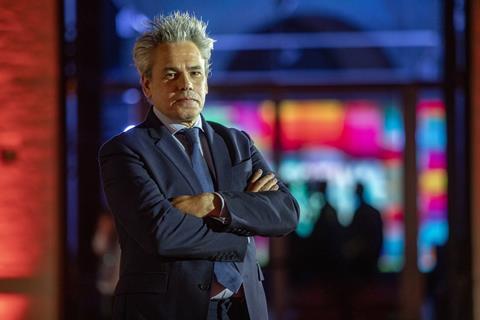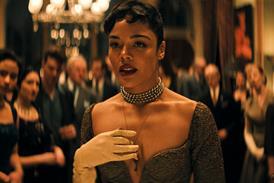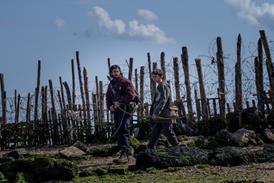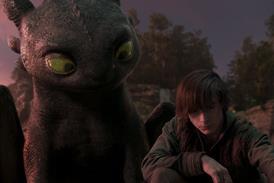
Manuel Cristóbal hit the ground running last year, taking up the role as head of the Seville European Film Festival just before its 20th edition.
A year later, and confirmed as the festival director, he has had time to work at a friendlier pace and introduce changes. Among his goals: to widen the European and international reach of the festival and rebuild bridges with the European Film Academy, as well as broadening the presence of the festival within Seville’s audience and the Spanish film industry.
The festival opens today, November 8, and runs until November 16.
The experienced producer, with credits including Wrinkles (2011) and Buñuel In The Labyrinth Of Turtles, talks to Screen about how he is positioning the festival to attract the local and international industry to Spain in November.
What have been your priorities this year?
I have listened to the different players in the industry and the city in order to shape [this year’s edition] and be useful towards the films, the city’s audience and the industry to make it worth their while to come to Seville. Seville is, fortunately, a word that opens many doors.
In terms of goals, one of them has been enhancing the link between the festival and the city and we have added a significant number of venues.
Another key objective is embracing European cinema in its broader sense, from arthouse productions to more mainstream approaches. We like covering a diverse arch in terms of films and in audiences too, like Emilia Pérez, which we are screening this year. The dates are also relevant, being so close to the Christmas theatrical campaigns, Seville wants to be as useful as possible to European films being released in Spain.
What can being selected to screen in Seville mean for a film?
We want to help boost the European titles in the run-up to the Oscars. We have created the Puerta America Award (America’s Gateway Award). The jury will choose among the European films that have been selected by their respective countries of origin for the best international feature category at the Oscars. Our prize includes €25,000 for the Spanish distribution company. The name of the award comes from the fact Seville was historically known as the Gateway to America.
Are you talking to the European Film Academy about returning the announcement of the nominations for the European Film Awards to Seville?
We are rebuilding bridges, so we hope to get them back.
Which of the significant number of Spanish productions in the different strands of the festival particularly stand out to you?
We have two world premieres in competition. Dismatling An Elephant, a first feature drama directed by Aitor Echeverría and Raqqa: Spy Vs Spy, a thriller by Gerardo Herrero, starring Álvaro Morte. For the first time we have also selected a TV series in the official selection, but out of competition, the documentary series El Circo De Los Muchachos, directed by Elías León Siminiani. And there are many other Spanish productions in the sidebar sections including the comedies Sin Instrucciones, by Marina Seresesky starring Paco León [distributed by Warner] or From Good to the Hood, by Mar Olid, starring Quim Gutiérrez and Sara Sálamo. They all give a sense of the diversity of Spanish talent.
What stands out to you about this 21st edition as a whole?
We are very pleased the jury is representative of different areas in the industry with a great producer like David Puttnam, an actor like Jeremy Irons, filmmaker Mounia Meddour, artistic director of the Rome Film Festival Paola Malanga and exhibitor Eva Rekettyei.
We are also very pleased Johnny Depp is coming with Modi, Three Days On The Wing Of Madness.
We will also set up an industry activity: Frame Seville. The idea is to debate about topics like over-production or the challenge of theatrical exhibition. I think it’s key to discuss topics such as the public funds, whether they are going to what is most necessary and how to build bridges with the market.

























No comments yet